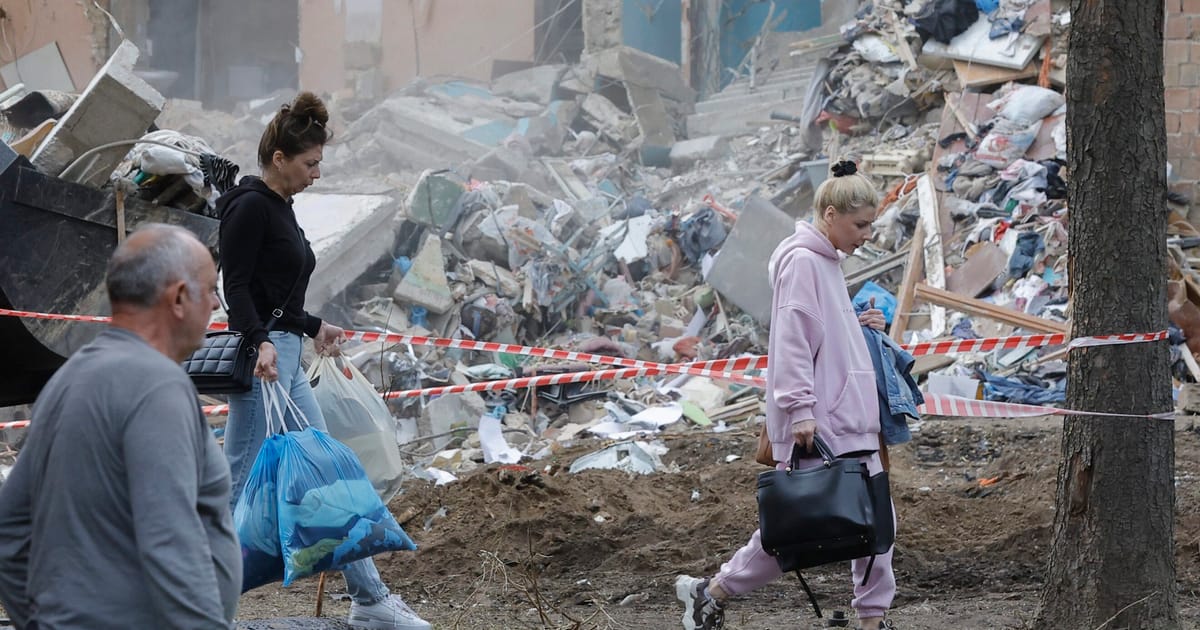

In recent days, the ongoing conflicts in Ukraine and Gaza have escalated, with severe consequences for the civilian populations involved. Both areas are experiencing intensified military actions and heightened calls for international intervention and support. These developments underscore the complex and challenging nature of conflict zones in today’s global landscape.
In Ukraine, the war witnessed one of its most significant escalations as Russia launched a barrage of 537 missiles and drones, marking the largest assault recorded in the ongoing conflict. This surge in hostilities has prompted Ukrainian President Volodymyr Zelenskyy to renew his appeals for the international community, particularly the United States, to supply Ukraine with advanced Patriot missile systems. The objective behind these calls is to bolster Ukraine’s defensive capabilities against such relentless attacks. The impact of these strikes continues to be acutely felt across affected regions, testing the resilience and resolve of the Ukrainian people.
The tragic loss of an F-16 pilot added a personal dimension to an already volatile situation, reminding the world of the human cost inherent in military conflicts. As international mediators and allies deliberate on potential ways to provide support, the situation remains delicate, with a pressing need for both immediate aid and long-term solutions.
Simultaneously, the situation in Gaza has intensified, resulting in substantial civilian casualties. Reportedly, overnight Israeli airstrikes resulted in the deaths of at least 62 individuals, further exacerbating the already dire humanitarian conditions in the region. Health officials in Gaza have painted a grim picture of the challenges facing its inhabitants, amidst calls for restraint and renewed dialogues for peace. Efforts to protect civilian populations and provide humanitarian aid are of paramount importance as the situation unfolds.
In parallel to these tragic events, diplomatic calls for peace are emerging from multiple quarters. Notably, Qatar has urged the international community to convene peace talks aimed at de-escalating tensions between Israel and Gaza. Such efforts highlight the global desire for sustainable peace solutions in the region, alongside measures to address immediate humanitarian needs.
In related regional developments, the airline Emirates temporarily ceased flights to Iran’s capital, Tehran, due to the ongoing regional tensions. However, flights to Baghdad and Basra are scheduled to resume in early July, indicating attempts to navigate around the complexities of regional conflicts while maintaining essential links for civilians and businesses.
The intricacies of these geopolitical dynamics reveal the interconnectedness of global events and the challenges presented in striking a balance between military actions and humanitarian considerations. As stakeholders strive for resolutions, the global community remains attentive and hopeful for breakthroughs that can provide sustainable peace and stability. In the meantime, immediate humanitarian relief remains a top priority.
Through these escalating crises, the world is reminded of the importance of peacemaking efforts and the need to protect innocent lives caught in the crossfire. As nations grapple with the ramifications of conflict, steadfast commitment to dialogue, diplomacy, and humanitarian aid offers a beacon of hope for those enduring the harsh realities of war.
Source: {link}
